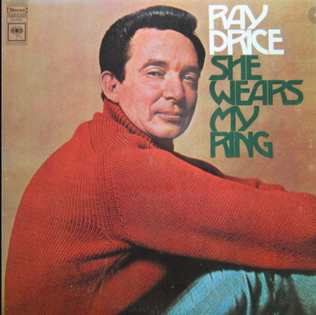La Golondrina (Song)
From Wikipedia, the free encyclopedia
| “La golondrina” | |
|---|---|
| Song | |
| Language | Spanish |
| English title | “The Swallow” |
| Written | 1862 |
| Genre | Folk |
| Songwriter(s) | Narciso Serradell Sevilla |
La golondrina (English: “The Swallow”) is a song written in 1862 by Mexican physician Narciso Serradell Sevilla (1843–1910), who at the time was exiled to France due to the French intervention in Mexico.
The song has also been recorded by Caterina Valente (1959)
Background
The lyrics come from a poem written in Arabic by the last Abencerrages king of Granada, Aben Humeya, in a translation by Niceto de Zamacois, which Serradell found in a magazine used as packing material.
La golondrina
The Spanish lyrics use the image of a migrating swallow to evoke sentiments of longing for the homeland. It became the signature song of the exiled Mexicans. The song was recorded in 1906 by Señor Francisco.
- A guitar instrumental was recorded by Chet Atkins in 1955.
- Nat King Cole (1962)
- Plácido Domingo (1984)
- Flaco Jiménez (1992, instrumental)
- Caetano Veloso (1994)
- Guadalupe Pineda (2004).
- In 1948, Gene Autry sang the song in his Cinecolor film, “The Big Sombrero“.
- James Last
- Los Caballeros
- Trio Los Panchos
- Yevgeny Belyaev and The Alexandrov Red Army Choir (1962)
She Wears My Ring
Felice & Boudleaux Bryant wrote lyrics in English, as “She Wears My Ring“, which was first recorded by Jimmy Sweeney (also known as Jimmy Bell) in 1960.
Other notable cover versions are by:
- Ray Davies & His Button Down Band
- Roy Orbison (1962)
- Melachrino Strings
- Johnny O’Keefe (1964)
- Elvis Presley (1973).
- Sakura Teng
Solomon King recording
Solomon King recorded the song in 1968 and it became an instant international hit.
Charts
| Chart (1968) | Peak position |
|---|---|
| Ireland (IRMA) | 13 |
| UK Singles (The Official Charts Company) | 3 |
- Ray Price(1968)
- Billy Vaughn
- Ricky King
She Wears My Ring (Album)
| She Wears My Ring | |
|---|---|
| Studio album by Ray Price | |
| Released | 1968 |
| Genre | Country |
| Label | Columbia |
| Producer | Don Law |
| Ray Price chronology | |
| Take Me as I Am (1968)She Wears My Ring (1968)Sweetheart of the Year (1969) | |
She Wears My Ring is a studio album by country music artist Ray Price. It was released in 1968 by Columbia Records (catalog no. CS-9733).
The album debuted on Billboard magazine’s country album chart on January 8, 1969, peaked at No. 6, and remained on the chart for a total of 21 weeks. The album included two singles that became Top 20 hits: “She Wears My Ring” (No. 6) and “I’ve Been There Before” (No. 11).
AllMusic gave the album three stars.
Track listing
Side A
2. “Little Green Apples“
3. “Set Me Free” (Curly Putman, Marvin Walters)
4. “Walking on the Grass” (Ray Pennington)
5. “Remembering” (Jerry Reed)
6. “Goin’ Away” (George Tomsco)
Side B
2. “I’m Gonna Change Everything” (Alex Zanetis)
3. “Trouble” (William Lee Ellis / Jule Styne)
4. “I’ve Been There Before” (Bobby Gosh)
5. “Welcome to My World“
Recordings in other languages
The song, recorded by 13-year-old Heintje, became a German number-one hit in August 1968 (title: Du sollst nicht weinen, “Thou shalt not cry”).
Anita Hegerland version
In June 1970, the 9-year-old Norwegian singer Anita Hegerland became a famed child singer with a recording in Swedish (Mitt sommarlov, “My summer break“) that topped the Swedish best selling chart Kvällstoppen for five weeks and Svensktoppen for seven weeks as well as the Norwegian singles chart for three weeks. At age 10, she became Norway’s first artist to sell over a million copies and she now is one of the best-selling solo singers in Norway, with sales of more than 7 million albums and singles. Hegerland’s songs have been released on nearly 30 million albums worldwide, most of which are with Roy Black and Mike Oldfield.
Charts
| Chart (1970) | Peak positions |
|---|---|
| Finland (Suomen virallinen lista) | 15 |
| Norway (VG-lista) | 1 |
| Sweden (Kvällstoppen) | 1 |
| Sweden (Svensktoppen) | 1 |
Popular culture
- The song figures prominently in the 1969 film The Wild Bunch, directed by Sam Peckinpah and scored by Jerry Fielding. The local people serenade the bandit protagonists with it as they leave Angel’s Mexican village.





































































Comments